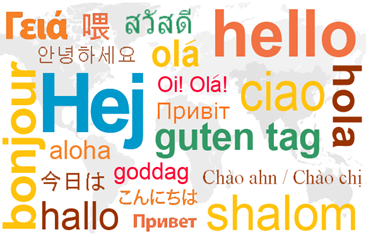Language is as interesting as it is strange. According to Wikipedia, approximately 359 million people speak English as their first language on this planet, and it is not even the most common language world-wide (Mandarin tops the chart). On the other end of the scale, there are approximately 2,000 languages that are spoken by 1000+ people each. Strange, complex, yet beautiful, here are top 3 bizarre languages still spoken around the world.

Archi
A language popular in a small village named Archib in southern Russia, Archi is spoken by a population of 1, 200 or less. Although, the language is no different from two other languages spoken in the village – namely Avar and Lak, linguists consider Archi to be one-of-a-kind language. One feature that makes this language interesting is – for any given verb, there are around 1, 500, 000 separate conjugations. One more reason why this language deservers a mention in our list.
Sentinelese
The language is as unique as its name. One interesting reason why this language is a part of our list is that we do not really know much about it. In the world, where we have explored or at least tried to explore almost everything, there is still a small island in the Indian Ocean where entry of outsiders is a big no-no. The residents of North Sentinel Island have a strict foreign relations policy, which is, shoot arrow at a stranger who tries to enter the island.
Silbo Gomero
This one tops the charts when we talk about uniqueness. While most languages incorporate complex letters, verbs, adjectives and what not, Silbo Gomero, a language of La Gomera on the coast of Spain, is remarkably simple – it is a whistle language. The understanding of people is amazing because whistles function similarly the way other languages function. Now, this is one language that we would love to learn.
World is filled with uniqueness. Do you know any language that is unpopular but interesting? Share your thoughts in the comments section.




